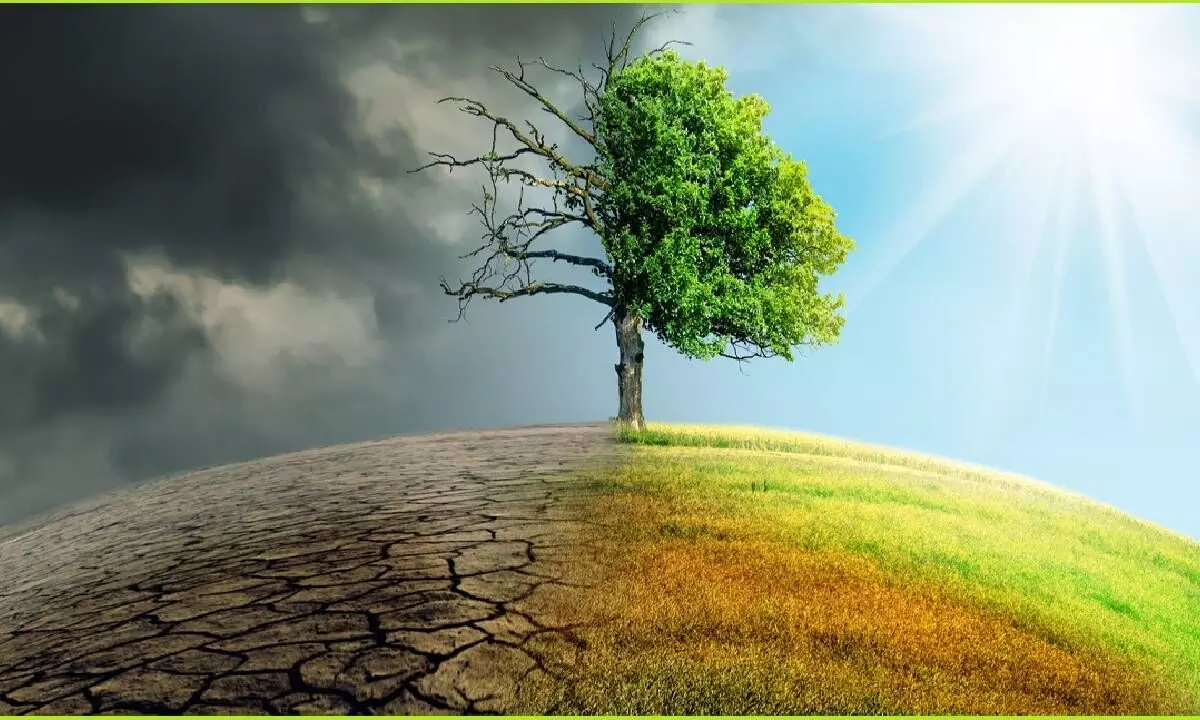Tech plays a critical role in addressing daunting climatic issues
The G-20 summit in Delhi has many takeaways. Without divulging into the details of geopolitics, the Delhi Declaration has emphatically addressed the climatic issues that the current world faces.
image for illustrative purpose

The G-20 summit in Delhi has many takeaways. Without divulging into the details of geopolitics, the Delhi Declaration has emphatically addressed the climatic issues that the current world faces. G-20 members recognised the need to reduce global greenhouse gas emissions by 43 per cent by 2030 as compared to the 2019 levels. It also encourages tripling of renewable energy capacity by 2030 by member nations. The declaration “...noted the need for $5.8-5.9 trillion in the pre-2030 period required for developing countries....as well as $4 trillion per year for clean energy technologies by 2030 to reach net zero by 2050.” This implies that global emphasis on net zero emission is increasing to considerable levels. Importantly, technology is playing a crucial role in reducing the greenhouse gases in the current world. Especially, digital technologies like AI, ML, big data, and blockchain have started to play an important role in meeting ESG (Environmental, Social, and Governance) goals. For instance, AI is increasingly being used to track optimum use of water and energy by users. Similarly, this technology is getting leveraged to understand the future demand of energy and water from the current usage pattern. AI and ML-based algorithm is on play in order to create predictive models about climatic conditions that different regions may face in the future. Big data is also getting leveraged to create patterns from weather data sets. Similarly, blockchain helps organisations in creating an audit trail of all the recorded data that can be used in future. These technologies also enable regulators to put control over excessive emissions by way of appropriate policy measures.
The world has, in the last decade, seen many erratic weather conditions playing out across different regions. India was subject to scorching heat with record temperature this summer. Similarly, the ongoing monsoon season is witnessing excess rains in some parts of India, while many others are having less rainfall, creating drought-like conditions. Many European nations and many parts of the US have had record-breaking temperature this year. Several nations in the African region frequently face drought-like conditions.
Ironically, the developing nations are facing the wrath of nature because of climatic excesses. In this context, technology can be a game-changer in reducing the overall emission in the world, especially in the developing world. In recent years, the usage of embedded digital tools like sensors, RFID tags and other such instruments in hardware instrument has risen. It shows these smart devices have the ability to gauge emission levels apart from reducing greenhouse gases by being energy efficient.
This is critical because agriculture production hinges on sound weather conditions. Post the Russia-Ukraine war, the world also has a rude awakening with regard to importance of smooth supply chain in agriculture. Digital technologies can play a critical play in this regard too. Therefore, more usage of technology in addressing the climatic issues has become imperative and India, endowed with remarkable technological prowess, can lead the world order in this regard.

